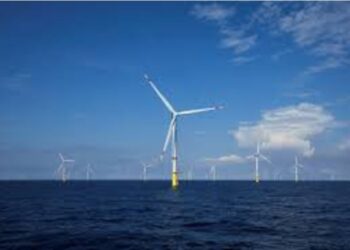The global light towers market has been experiencing substantial growth, driven by increasing demand across various industries such as construction, mining, and oil & gas. Light towers, essential for providing reliable and efficient illumination in remote or low-light conditions, have become indispensable in ensuring safety and productivity in these sectors. This article delves into the key trends, growth drivers, and future prospects of the light towers market, providing a comprehensive overview based on insights from the latest market research report by Fact.MR.
Market Overview and Segmentation
The light towers market is segmented based on type, end-use industry, and region. The primary types of light towers include diesel-powered, solar-powered, and battery-powered variants. Diesel-powered light towers currently dominate the market due to their high efficiency and reliability in harsh environments. However, with the growing emphasis on sustainability and reducing carbon footprints, solar-powered and battery-powered light towers are gaining traction. End-use industries such as construction, mining, and oil & gas are the major consumers of light towers, with construction leading the pack due to ongoing infrastructure development projects worldwide. Geographically, North America holds a significant share in the market, followed by Europe and the Asia Pacific.
Growth Drivers
Several factors are driving the growth of the light towers market. The primary driver is the increasing number of infrastructure projects globally. As countries invest heavily in building and upgrading infrastructure, the demand for light towers to ensure round-the-clock operations has surged. Additionally, the mining industry, with its need for continuous operations in remote locations, relies heavily on light towers. The oil & gas sector also contributes significantly to market growth, especially in regions with extensive exploration activities. Furthermore, the rise in outdoor events and emergency response activities has further bolstered the demand for portable and reliable lighting solutions.
Technological Advancements
Technological advancements are playing a crucial role in shaping the future of the light towers market. Innovations such as LED lighting, hybrid power systems, and smart control systems have revolutionized the industry. LED light towers offer higher efficiency, longer lifespan, and better illumination compared to traditional lighting solutions. Hybrid power systems, combining diesel and solar energy, provide a sustainable and cost-effective solution, especially in remote areas. Smart control systems enable remote monitoring and control of light towers, enhancing operational efficiency and reducing maintenance costs. These technological advancements are expected to drive market growth and open new avenues for industry players.
Sustainability and Environmental Impact
With the increasing focus on sustainability and reducing environmental impact, the light towers market is witnessing a shift towards eco-friendly solutions. Solar-powered and battery-powered light towers are gaining popularity due to their zero-emission nature and lower operational costs. Manufacturers are also exploring the use of energy-efficient LEDs and hybrid power systems to meet the growing demand for green solutions. Government regulations and incentives aimed at promoting sustainable practices are further encouraging the adoption of eco-friendly light towers. This shift towards sustainability not only aligns with global environmental goals but also offers long-term cost benefits for end-users.
Regional Analysis
Regionally, North America remains a dominant player in the light towers market, driven by extensive construction activities and oil & gas exploration. The region’s stringent safety regulations and the need for reliable lighting solutions in emergency situations further boost market demand. Europe follows closely, with countries like Germany and the UK investing heavily in infrastructure development and renewable energy projects. The Asia Pacific region is expected to witness significant growth due to rapid urbanization, industrialization, and infrastructure investments in countries like China and India. Latin America and the Middle East & Africa also present lucrative opportunities, driven by the expanding construction and mining sectors.
Challenges and Opportunities
Despite the promising growth prospects, the light towers market faces several challenges. The high initial cost of advanced light towers, especially solar-powered and hybrid variants, can be a deterrent for some end-users. Additionally, the need for regular maintenance and the availability of alternative lighting solutions pose challenges to market growth. However, these challenges also present opportunities for innovation and development. Manufacturers can focus on cost-effective solutions, enhanced durability, and user-friendly designs to address these issues. Moreover, the increasing emphasis on worker safety and productivity in various industries creates a constant demand for efficient lighting solutions, providing a steady growth trajectory for the market.
Competitive Landscape
The light towers market is highly competitive, with numerous players vying for market share. Key players include Generac Mobile Products, Terex Corporation, Wacker Neuson SE, and Atlas Copco AB, among others. These companies are focusing on expanding their product portfolios, enhancing technological capabilities, and entering new markets to gain a competitive edge. Strategic partnerships, mergers, and acquisitions are common strategies adopted by market players to strengthen their market position. Additionally, continuous research and development efforts are aimed at introducing innovative and sustainable lighting solutions to meet evolving customer needs.
Future Outlook
The future of the light towers market looks promising, with continuous advancements in technology and increasing demand from various industries. The shift towards sustainable and eco-friendly solutions is expected to drive market growth, as more end-users seek efficient and environmentally responsible lighting options. The construction and mining sectors will continue to be major contributors to market demand, while the oil & gas industry will remain a key driver. Emerging markets in the Asia Pacific, Latin America, and the Middle East & Africa offer significant growth opportunities, driven by rapid industrialization and infrastructure development.
Conclusion
In conclusion, the light towers market is poised for robust growth, driven by increasing infrastructure projects, technological advancements, and a shift towards sustainable solutions. While challenges such as high initial costs and maintenance requirements exist, they also present opportunities for innovation and development. As industries continue to prioritize safety, productivity, and environmental responsibility, the demand for efficient and reliable light towers will remain strong. Market players must focus on enhancing their product offerings, leveraging technological advancements, and exploring new markets to capitalize on the growth opportunities in this dynamic industry.













